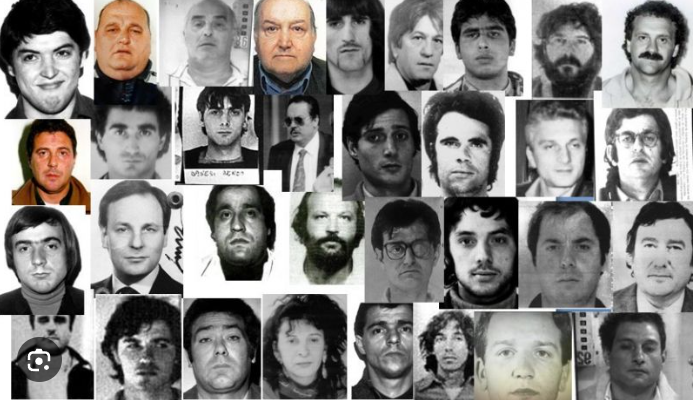After tackling the mobster church benefactor who was buried in the Saint Apollinare Church in Rome, Ernesto De Pedis, let us have a look at the gang that he was the leader of – known as “Banda della Magliana.”
The Banda della Magliana emerged in the middle of the 1970s and grew to be the most potent criminal group Rome had seen in centuries.
Rome has always been a challenging city to govern. It may seem difficult for one individual or group to rule Rome given the turbulent political climate in Italy and the Vatican City.
But in the middle of the 1970s, a small gang of suburban outlaws rose to prominence and became the most potent criminal organization the city had seen in ages. The media dubbed the group the “Banda della Magliana” because many of its members were from the Magliana district. During one of the most chaotic times in Italian history, the gang rose to power and ruled over the nation’s capital.
Like any strong group, they required a charismatic leader to guide them toward success, and Franco Giuseppucci, a young, aspirational criminal from central Rome, would prove to be the ideal candidate to take over the city.
In 1947, Franco Giuseppucci was born in Rome’s historic Trastevere neighborhood. He started working at his father’s bakery when he was a youngster, earning him the moniker Er Fornaretto, or “The Little Baker.” Nevertheless, Giuseppucci was had to resign from his position following the death of his criminal father during a gunfight with law enforcement.
Strongly sympathetic to fascism, Giuseppucci first came into contact with neo-fascists like Massimo Carminati and Alessandro Alibrandi, as well as other members of the Italian terrorist neo-fascist militant organization Nuclei Armati Rivoluzionari (NAR), thanks to his allegiance to fascism and the propagandist actions of the Italian Social Movement (MSI). His links to the NAR would prove crucial, as they would go on to play a major role in many of the Banda della Magliana’s illicit endeavors.
Giuseppucci gained employment as a bouncer for a gambling establishment in the Ostia area by the sea after quitting his profession as a baker. It was at this point that Giuseppucci first encountered the criminal underworld that was active in Rome at the time. Giuseppucci discovered that, despite his neo-fascist beliefs, he shared more characteristics with the criminals he encountered in Ostia because he was less concerned with the political radicals of the NAR and more with the wealthy and materialistic. Rome’s criminal underworld was unorganized throughout those years, with no single group controlling the entire city. Rather, batterie—small, autonomous organizations that often had three to four members—operated in various neighborhoods throughout the city.
These organizations usually were involved in robbery and gambling.

